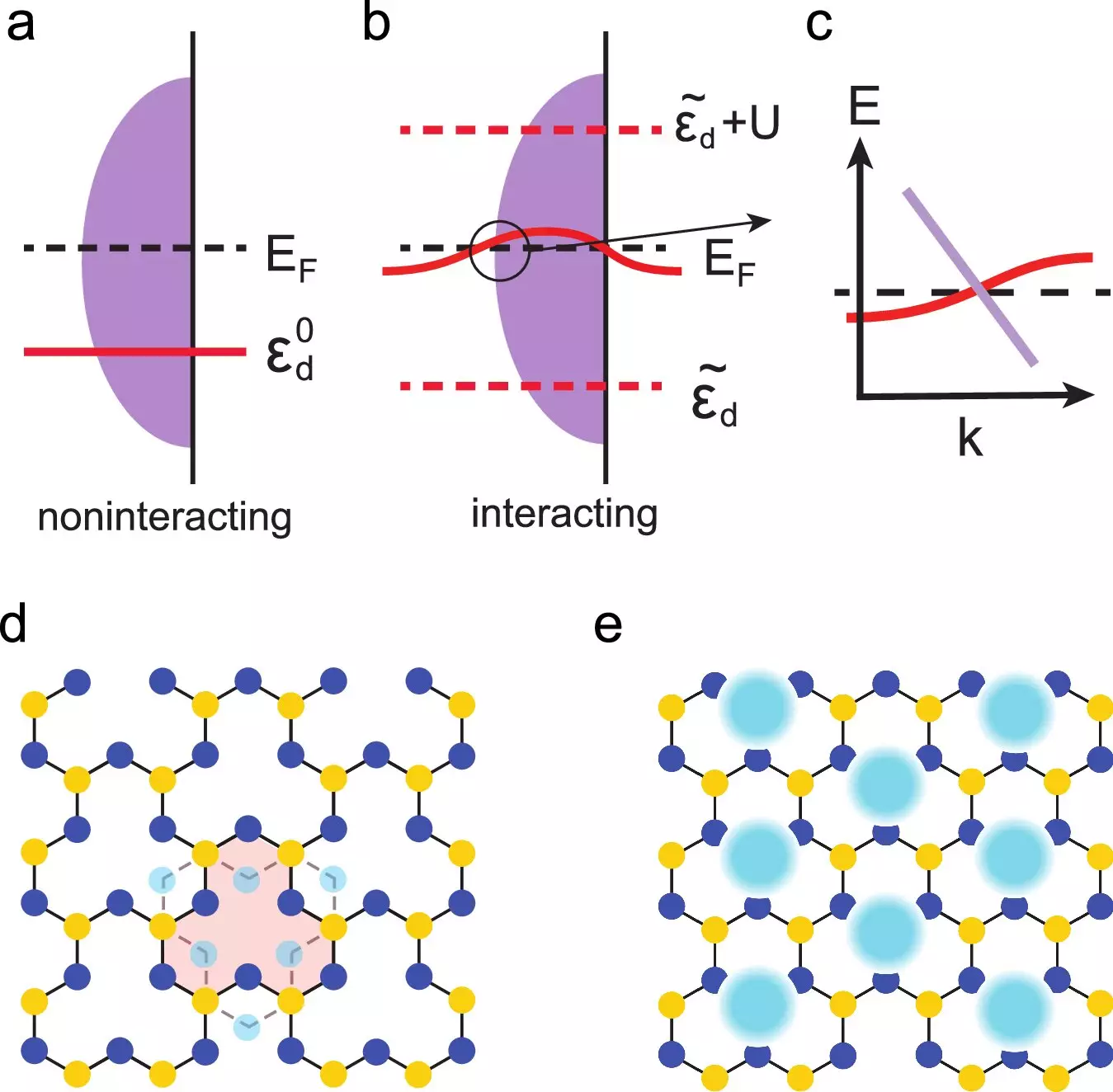The study published in Nature Communications by Rice University’s Qimiao Si and his team sheds light on the potential of flat electronic bands at the Fermi level in quantum materials. These bands have implications for the development of quantum computing and electronic devices, offering new possibilities for manipulating electron interactions.
Unlike traditional energy bands, flat bands at the Fermi level do not change with momentum due to quantum interference. This unique characteristic allows for enhanced electron interactions, leading to the creation of new quantum phases and low-energy behaviors. Flat electronic bands are particularly valuable in transition metal ions with specific crystal lattices, offering unique properties that can be harnessed for quantum bits, qubits, and spintronics.
Si’s team used a theoretical model to demonstrate that electron interactions can create a new type of Kondo effect, facilitating the mobility of immobile particles through interactions with mobile electrons at the Fermi level. This insight could pave the way for significant advancements in understanding electron behavior and designing novel quantum materials.
Topology of Flat Bands
A key attribute of flat bands is their topology, which plays a crucial role in realizing new quantum states of matter. The flat bands pinned to the Fermi energy offer opportunities for exploring exotic particles such as anyons and Weyl fermions. These particles, with unique properties like carrying an electric charge or being massless quasiparticles, hold promise for applications in qubits and spin-based electronics.
Potential Applications and Future Directions
The research highlights the potential of flat bands to enable the development of strongly correlated topological semimetals at relatively low temperatures. This opens up possibilities for high-temperature operation and advanced quantum control in electronic devices. By exploring the interactions between immobile and mobile electron states, researchers can design materials that operate beyond the constraints of low temperatures, offering new avenues for innovation in quantum technologies.
The study by Si and his team underscores the importance of flat electronic bands in quantum materials for the advancement of quantum computing and electronic devices. By leveraging the unique properties of flat bands at the Fermi level, researchers can unlock new opportunities for manipulating electron interactions and designing novel quantum materials with enhanced functionalities. This research sets the stage for future exploration into the applications of flat bands in enabling high-temperature quantum operations and pushing the boundaries of quantum technology.


Leave a Reply